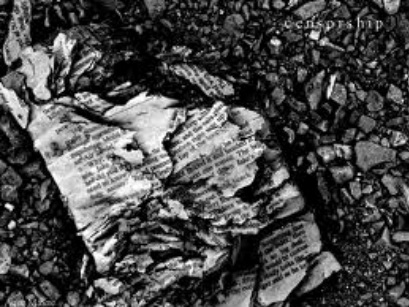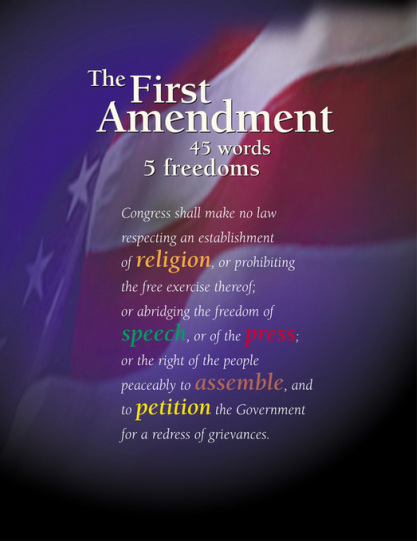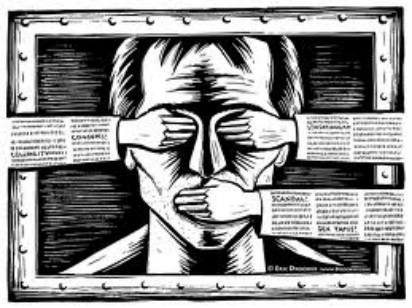Home
WELCOME TO MY WEBSITE!

This website was created for a solo project in Dr. Cooper's ENH295-Banned Books and Censorship class, Spring 2011. Neither Glendale Community College nor myself are affiliated with Stephen King. All information contained herein is derived from my own readings, the viewing of movies, or from research done on the web and/or print material. If you have stumbled across this page seeking information, please use the cited works on the various pages throughout for more thorough information. PLEASE NOTE: UNLESS OTHERWISE INDICATED, ALL IMAGES ARE FROM GOOGLE IMAGES AND CONTAIN NO META DATA.
This website will delve into the works of Stephen King and why his books are the targets of so many individuals and groups seeking to ban them. Stephen King is a prolific author. He has published both short stories and full length novels. To date, 80 of his novels or short stories have been adapted into full length motion pictures or mini-series on television, inclusive of sequels.
"I recognize terror as the finest emotion and so I will try to terrorize the reader. But if I find that I cannot terrify, I will try to horrify, and if I find that I cannot horrify, I'll go for the gross-out. I'm not proud." - Stephen King
IMAGE ABOVE: © Copyright 2009 FUSION FOTO, LLC by Rebecca Sandidge.
This website will delve into the works of Stephen King and why his books are the targets of so many individuals and groups seeking to ban them. Stephen King is a prolific author. He has published both short stories and full length novels. To date, 80 of his novels or short stories have been adapted into full length motion pictures or mini-series on television, inclusive of sequels.
"I recognize terror as the finest emotion and so I will try to terrorize the reader. But if I find that I cannot terrify, I will try to horrify, and if I find that I cannot horrify, I'll go for the gross-out. I'm not proud." - Stephen King
IMAGE ABOVE: © Copyright 2009 FUSION FOTO, LLC by Rebecca Sandidge.
BANNED BOOKS*
* #49 Cujo - 1981
* #81 Carrie - 1974
* #82 The Dead Zone - 1979
* #95 Christine - 1983
*100 Most Challenged Books: 1990-1999
Other books challenged/banned:
* The Bachman Books - 1985
* Different Seasons - 1982
* The Eyes of the Dragon - 1987
* Firestarter - 1992
* Four Past Midnight - 1990
* Gerald's Game - 1991
* It - 1986
* Night Shift - 1977
* Pet Semetary - 1983
* Salem's Lot - 1975
* The Shining - 1977
* The Stand - 1990
* The Skeleton Crew - 1985
* The Talisman - 1984
* Thinner - 1984 (under Bachman)
* The Tommyknockers - 1987
* The Drawing of the Three - 2003
"ALA." ALA | Home - American Library Association. Web. 27 Apr.
2011.< http://www.ala.org/ala/issuesadvocacy/banned/frequently
challenged/challengedbydecade/1990_1999/index.cfm>.
* #49 Cujo - 1981
* #81 Carrie - 1974
* #82 The Dead Zone - 1979
* #95 Christine - 1983
*100 Most Challenged Books: 1990-1999
Other books challenged/banned:
* The Bachman Books - 1985
* Different Seasons - 1982
* The Eyes of the Dragon - 1987
* Firestarter - 1992
* Four Past Midnight - 1990
* Gerald's Game - 1991
* It - 1986
* Night Shift - 1977
* Pet Semetary - 1983
* Salem's Lot - 1975
* The Shining - 1977
* The Stand - 1990
* The Skeleton Crew - 1985
* The Talisman - 1984
* Thinner - 1984 (under Bachman)
* The Tommyknockers - 1987
* The Drawing of the Three - 2003
"ALA." ALA | Home - American Library Association. Web. 27 Apr.
2011.< http://www.ala.org/ala/issuesadvocacy/banned/frequently
challenged/challengedbydecade/1990_1999/index.cfm>.
STEPHEN KING ON CENSORSHIP
It was 1992, and, not for the first time Stephen King returned from lunch to find his desk littered with pink message slips. There were messages from television stations, radio stations, and newspapers. Once again, book-banners were up to their tricks.
This time a middle school in Florida had targeted two of his books, The Dead Zone and Tommyknockers. All of the messages were seeking a comment from King. His normal manner of handling these issues was to ignore them and toss the phone messages into the trash can. But on second thought, he decided that “the author could not be reached for comment” seemed a lame
excuse.
King decided to set the record straight and he wrote a guest column in the Bangor Daily News. His comments were first addressed to the kids – his readers. He urged them to not argue with authority and not to waste their time in protest. Instead, he encouraged them to “hustle down to your library,” or a bookstore and purchase the book. He reminded them that John Steinbeck, J.D. Salinger and Mark Twain all faced book bannings for over 20 years.
He then addressed their parents by impugning their parenting skills – hinting that these book banners knew better how to raise their children. He asked them to consider the matter carefully. King reminded the parents that these book-banners “don’t believe in democracy, but rather in a kind of
intellectual autocracy.” He assured them that if they didn’t pay attention and didn’t defend their children’s rights to read, that there would not be much left. King indicates that if only the fairy tale happy ending stories are left for their children to read, their minds will not be sharpened for the future decisions they will be faced with.
King also addressed the citizens of the towns banning books. He reminded them that book-banning is censorship. King is correct when he implies that book-banners are people who feel that the entire community should think and feel as they do.
King does not believe all books should be made available to young minds. Schools are “…a
managed marketplace,” and books like “Fanny Hill’ or the gruesome “American Psycho,” probably should not be read by young people, at least not from a school library. But King is very clear on his personal stance of censorship. He does not want to spend his time or his energy defending his books in every state, in every school district– he wants to write stories so others can continue to read. He does feel it is our duty and obligation to fight for our First Amendment Rights as stated below:
“Do I believe a defense should be mounted? Yes. If there's one American belief I hold above all others, it's that those who would set themselves up in judgment on matters of what is "right" and what is "best" should be given no rest; that they should have to defend their behavior most stringently. No book, record, or film should be banned without a full airing of the issues. As a nation, we've been through too many fights to preserve our rights of free thought to let them go just because some prude with a highlighter doesn't approve of them."
King, Stephen. "StephenKing.com - Book-Banners: Adventure in Censorship Is Stranger Than Fiction, The." Welcome to StephenKing.com. 20 Mar. 1992. Web. 30 Apr. 2011.
http://www.stephenking.com/library/essay/book-banners:_adventure_in_censorship_is_stranger_than_fiction_the.html.
It was 1992, and, not for the first time Stephen King returned from lunch to find his desk littered with pink message slips. There were messages from television stations, radio stations, and newspapers. Once again, book-banners were up to their tricks.
This time a middle school in Florida had targeted two of his books, The Dead Zone and Tommyknockers. All of the messages were seeking a comment from King. His normal manner of handling these issues was to ignore them and toss the phone messages into the trash can. But on second thought, he decided that “the author could not be reached for comment” seemed a lame
excuse.
King decided to set the record straight and he wrote a guest column in the Bangor Daily News. His comments were first addressed to the kids – his readers. He urged them to not argue with authority and not to waste their time in protest. Instead, he encouraged them to “hustle down to your library,” or a bookstore and purchase the book. He reminded them that John Steinbeck, J.D. Salinger and Mark Twain all faced book bannings for over 20 years.
He then addressed their parents by impugning their parenting skills – hinting that these book banners knew better how to raise their children. He asked them to consider the matter carefully. King reminded the parents that these book-banners “don’t believe in democracy, but rather in a kind of
intellectual autocracy.” He assured them that if they didn’t pay attention and didn’t defend their children’s rights to read, that there would not be much left. King indicates that if only the fairy tale happy ending stories are left for their children to read, their minds will not be sharpened for the future decisions they will be faced with.
King also addressed the citizens of the towns banning books. He reminded them that book-banning is censorship. King is correct when he implies that book-banners are people who feel that the entire community should think and feel as they do.
King does not believe all books should be made available to young minds. Schools are “…a
managed marketplace,” and books like “Fanny Hill’ or the gruesome “American Psycho,” probably should not be read by young people, at least not from a school library. But King is very clear on his personal stance of censorship. He does not want to spend his time or his energy defending his books in every state, in every school district– he wants to write stories so others can continue to read. He does feel it is our duty and obligation to fight for our First Amendment Rights as stated below:
“Do I believe a defense should be mounted? Yes. If there's one American belief I hold above all others, it's that those who would set themselves up in judgment on matters of what is "right" and what is "best" should be given no rest; that they should have to defend their behavior most stringently. No book, record, or film should be banned without a full airing of the issues. As a nation, we've been through too many fights to preserve our rights of free thought to let them go just because some prude with a highlighter doesn't approve of them."
King, Stephen. "StephenKing.com - Book-Banners: Adventure in Censorship Is Stranger Than Fiction, The." Welcome to StephenKing.com. 20 Mar. 1992. Web. 30 Apr. 2011.
http://www.stephenking.com/library/essay/book-banners:_adventure_in_censorship_is_stranger_than_fiction_the.html.




